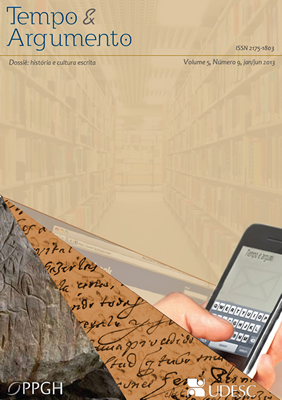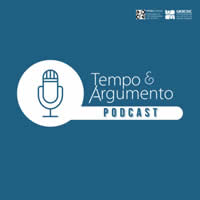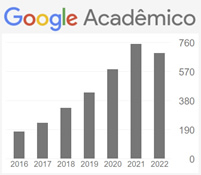Between memory and history, broken filiation, trauma, life story and passion for archives
DOI:
https://doi.org/10.5965/2175180305092013231Keywords:
hidden jewish, children, deportation, archives, transmission, World War IIAbstract
My paper describes some aspects of a research or rather a fellowship I conducted with a particular group of former Jewish children hidden in France during the occupation whosurvived the genocide and I met 60 years later. My purpose is based on my involvement with the Association for the memory convoy Y they have created and I will follow the various activities and conduct interviews with 16 participants. For over four years, I will follow the group: meetings, general meetings, commemoration trips in province, in Paris and Poland, exhibitions and various developments of the association. The group did'nt met in the name of their singular and painful experience of Jewish children hidden in France during the WW II, but on behalf of the memory of their parents deported in July 1942 and mostly murdered in Auschwitz. I wondered what was at stake in the dynamism of those contemporary meeting about traumas and disappearances of more than half a century, with the feeling that recovering road and possible mourning were authorized or legitimized by their research project, transmission aims and passion for archives.
Downloads
References
BERGES, Jean. Les états dépressifs de l’enfant. Conférence de l’hôpital Sainte Anne (conférence dactylographiée non publiée, 1996).
BOCHURBERG, Claude. Entretien avec Serge Klarsfeld.Paris: Stock, 1997.
DERRIDA, Jacques. Conférence prononcée le 5 juin 1994 à Londres lors d'un colloque international: Memory : The Question of Archives. Le texte est daté du 22-28 mai 1994.
ENRIQUEZ, Micheline. L'enveloppe de mémoire et ses trous. Topique 42, p.185-205, 1988.
FREUD, Sigmund. Totem et tabou. Paris: Payot, 1968.
FREUD, Sigmund. Moise et le monotheisme. Gallimard: Paris, 1939/1967.
FRESCO, Nadine. La diaspora des cendres, Nouvelle Revue de Psychanalyse, Paris, l’Emprise, 24, p. 205-220, 1981.
GANDINI, Jean-Jacques. Le procès Papon. Paris: Librio, 1999.
HIRSH, Marianne. The Generation of Postmemory,Poetics Today, Durham, 29, 1, p. 103-128, 2008.
HIRSH, Marianne. Family Pictures: Maus, Mourning and Post-Memory, Discourse, 15, 2, p. 3-29, 1992.
KAES, René.Transmission de la vie psychique entre generations. Paris: Dunod, 1993.
KLARSFELD, Serge. Le Mémorial de la déportation des Juifs de France. Paris: FFDJDF,1978.
LEMEE, Carole.; GALAY, Daniel. L’Après-Shoah: des traumas aux processus de réinscription, Face à Face, 5, 2003.
LEVI, Primo. Si c'est un home. Paris: Julliard, 1987.
MASPERO, François. Les abeilles et la guêpe. Paris: Seuil, 2002.
MOUCHENIK, Yoram. De la disparition au deuil chez les orphelins de la Shoah, L’autre, 5, 1, p.129-141, 2004.
MOUCHENIK, Yoram. Ce n’est qu’un nom sur une liste, mais c’est mon cimetière, Grenoble: La Pensée Sauvage, 2006.
SPIEGELMAN, Art. Maus: Un survivant raconte. 1986.
WAINTRATER, R. Sortir du génocide. Témoignage et survivance. Paris: Petite bibliothèque Payot, 2011.
WIEVORKA, Annette. Auschwitz, 60 ans après,Paris: Robert Laffont, 2005.
YERUSHALMI, Yosef.; HAYIM, Zakhor. Histoire juive et mémoire juive. Paris: La découverte, 1984.
Downloads
Published
How to Cite
Issue
Section
License
Copyright (c) 2013 Tempo e Argumento

This work is licensed under a Creative Commons Attribution-NonCommercial 4.0 International License.
The articles published by the magazine are for free use, destined for educational purposes and not commercial. The copyrights are all granted to the magazine. The articles whose authors are identified represent the expressed opinion of its authors and not the official position of the Tempo e Argumento magazine or of the Postgraduate Program in History of the Universidade do Estado de Santa Catarina.




